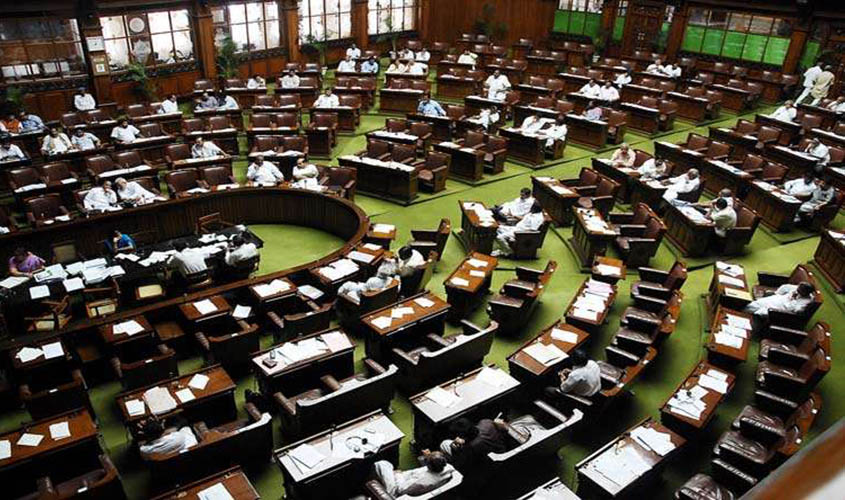Regular abuses of the past in the politics of the present make history a hot subject. The tension between accepted propositions within history as a professional discipline and crude propaganda of the popular domain is frequently transformed into violent contestations in public. History is used as a weapon in the politics of religious, linguistic, regional, ethnic and caste identities. Agenda-driven political positions, or competing ideologies, also compromise on the question of “truth”—that is, truth relating to what exactly happened in the past, a fundamental concern in any discussion on historical reality. Popular perceptions of the past, based on faith, community or party interests, treat myths and legends as historical facts. Emotional assertions often lead to turf-wars and street fights as well as attempts to control resources and institutions.
Political domain entails activism, propaganda, ideology, history, theory as well as philosophy. At the bottom of the pit, engagement in third-rate politics takes the form of back of the lane stabbings and confrontations, where the boundary between crime and politics gets blurred. By contrast, in all civilised societies, scholars, writers, historians, political theorists and philosophers have always been at the top of the social and political order. Scholarly excellence demands that members of academic community should aspire for the highest of the intellectual plane—maintaining graceful distance and, accordingly, treated with dignity. In any civilisational history, scholars and intellectuals occupy a prominent position, since without their contribution credible histories would not be possible, though some political propagandists could offer a tunneled vision of dominant political ideologies celebrating achievements of conquerors and rulers.
Certainly, in times of political instability, state and competent rulers are needed for ensuring political stability, managing community relations in societies with vast diversities, law and order, peace and tranquility, enforcement of a progressive law with the idea of justice for all—as law cannot be discriminatory—and general economic well-being of people; what could be termed as development. There are moments when governments and states fail to deliver, when third-rate theologians are privileged over first-class intellectuals, for the former can legitimise political abuse of religion, whereas critical unbiased scholars would question violations of standard norms fearlessly. As historian and political theorist Ziya-ud-din Barani stated in the fourteenth century, historians and intellectuals should steer clear of any falsehood.
In India, we have thousands of years of civilisational achievements of excellence in different spheres of life—political, economic, social and cultural. They provide us with strength and confidence that divisive politics may push us towards the abyss at times, but sanity eventually prevails; religious justification of violence takes a back seat to pragmatic governance and peace. The unity in diversity slogans such as sarv-dharm sadbhav/mazhab nahin sikhata apas mein bayr rakhna highlight the value of peaceful co-existence. Cultural separatism and domination is set aside in favour of shared traditions and history. Common customs and practices lead us forward. Tolerance of differences and the state maintaining equitable distance from sparring religious communities have frequently found favour in our past. Whatever the provocation and no matter who is in power, violence on the streets is condemnable as it defies the logic of the existence of the state itself.
Great empires and states have shown that inclusive politics is always better as it unites people for peaceful co-existence; they have recognised diversity and value of pluralism and the prosperity these ideas generated. On the other hand, aggressive and extremist political position divides and excludes people, supports an unjust order and condones violence. Unleashing violent mobs on university campuses should certainly be an aberration and not the norm in any civilised society. Despite all the limitations and challenges—identity-politics, ideological struggles and fear of violence—the parameters of historical research have expanded and historians are arriving at some approximation of truth. Instead of insisting on an absolute truth, they are now recognising the possibility of space for difference of opinion and multiplicity of interpretations and perspectives. In all these, the conventional commitment to the protocols of historical research, method and practice are upheld, especially with regard to the primacy of evidence, asking a whole new set of questions and offering reasonable arguments in fine narratives.
Some fine examples of this present research includes new histories of competitive religious practices, sophisticated political theories, questions of sovereignty, vibrant literary and historical traditions, fascinating visual cultures studied through art historical methods, consumption and trade, as well as outstanding issues of regional, caste, gender or linguistic identities.
Nations and nationalists are important, but regions are asserting and their assertions are reflected in varied new regional histories. And thankfully, despite all the abuses heaped on it, some exhilarating research in recent years have established that medieval India, too, was not a dark age!

